In early November 2024, we raised the alarm that the IMF forecast for inflation in…
D-Econ’s 2020 Alternative Reading List
Here’s a list of the top 12 books of the year to help us understand and address the economic, social, and ecological challenges the world is facing at the end of 2020, from the dynamic group of young economists at Diversifying and Decolonising Economics (D-Econ, https://d-econ.org/).
As 2020 year draws to a close, we have picked 12 books that we believe are of particular importance to provide an alternative, richer understanding of the socio-economic world we live in, than what the mainstream media provides. Beyond the dramatic health and economic impacts of COVID-19 across the world and the increased attention to global ecological problems, we have also seen protests unfolding globally, including #BlackLivesMatter protests originating in the US, anti-Citizenship Amendment Act protests and protests against Agricultural Reform Acts in India, the October Revolution in Lebanon, and protests against SARS in Nigeria – to name a few. Against this backdrop, we consider this to be a rather pertinent time to read up on how social movements and ecological issues connect to economics, and, in the process, broaden our understanding of economics. Further, with the social movements unfolding across the world in response to several social, economic, and ecological crises, we also view this specific moment in history of particular importance to reassess global capitalism and to recognize its specificities both in the Global North and in the Global South.
The Young Lords by Johanna Fernández is a good book to go to for an explanation of the importance and power of collective organizing (key to understand in the context of #BLM), while Veronica Gago’s Feminist International is a good book to go to to start to ask what another theory of power might look like – one premised on our desire to change everything. To shed light on the political economy of ecological challenges and how ecology in capitalism can be theorized and studied, we recommend both Extractivisms by Eduardo Gudynas and The Robbery of Nature by John Bellamy Foster and Brett Clark, which together show both the multifaceted consequences of extractivism on nature and communities in the Global South and the link between social and environmental critiques of capitalism more broadly. More generally, Jairus Banaji’s A Brief History of Commercial Capitalism, Brett Christopher’s Rentier Capitalism and Shiu Hing Lo’s Casino Capitalism, Society and Politics in China’s Macau provide important alternative understandings of capitalism. Sarah Jaffe’s Work Won’t Love you Back provides a salient reminder about the increasingly toxic relationship many of us have with our jobs under capitalism, and Juan Pablo Bohoslavsky, Karinna Fernández and Sebastián Smart’s Pinochet’s Economic Accomplices explores the relationship between political and economic injustice in Chile from a variety of disciplinary perspectives.
Finally, we are thrilled to include no less than three books that highlight contributions from pioneering scholars from the Global South this year. Insights from the prominent feminist economist and public intellectual, Devaki Jain, enrich our understanding of informal economy, gender, poverty, and power and colonialism, insights from Dadabhai Naoroji are key for understanding colonial drain and damaging impacts of colonialism in India in the 19th century, while the work of Sam Moyo is crucial for anyone interested in agrarian change and critical African scholarship.
The Young Lords: A Radical History
By Johanna Fernández
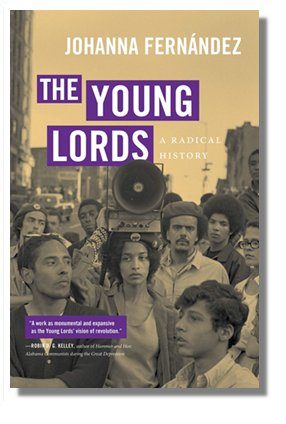
This book provides a beautifully-written and painstakingly-researched account of the Young Lords, a group of Puerto Rican and Black American radicals campaigning for civil and human rights, socialism and Puerto Rican independence in 1960s New York. The group, stepping in where state services were absent, sought to reclaim a sense of dignity amongst New York’s working class by ensuring basic human needs were met and establishing community control over institutions. Alongside serving all manner of local demands, they also articulated a damning critique of American foreign policy, drawing parallels between the experiences of their New York neighbourhoods and colonised Puerto Ricans. Fernández details their powerful history, from their humble beginnings as a street gang serving breakfast to school children, tracing their rise as a prominent revolutionary political organisation. She uses archive material, personal accounts and police records, acquired after a decade-long Freedom of Information case, to tell the story of these influential activists and theorists who remain excluded from most accounts of the period. The Young Lords and their societal visions are uncovered as pivotal to various initiatives, from free school meals to hip-hop, whilst their legacy is shown to include the centrality of class analysis to race; of colonisation to immigration; and of revolution to everyday acts of survival.
Work Won’t Love you Back: How Devotion to Our Jobs Keeps Us Exploited, Exhausted, and Alone
By Sarah Jaffe
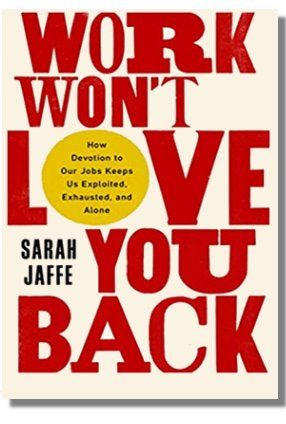
Sarah Jaffe’s examination of the “labour of love” myth, which posits certain types of work as performed for passion instead of pay, is more relevant than ever amidst expanding narratives of ‘friendly’, ‘progressive’ workplaces. She uncovers this seemingly benign myth of ‘doing what you love’ as creating an environment of exploitation, whereby attempts to secure better working conditions, higher pay or fewer hours are dismissed as greedy. In her analysis, Jaffe is thorough, moving from ‘How did we get here?’ to ‘Where can we go?’ within each case study. By exploring the histories of various industries – education, care, voluntary and non-profit sectors, amongst others – Jappe provides context for the emergence and naturalisation of such rhetoric. She then uses the personal accounts of individuals working within these industries to illustrate how workers are resisting, outlining the ways in which wider society can, too, reject this subtle yet exploitative trap. Reminiscent of Boltanski and Chiapello’s ‘The New Spirit of Capitalism’, as well as David Graeber’s ‘Bullshit Jobs’, Jaffe contributes to the literature on modern capitalist exploitation with a thoughtful, humorous, sometimes brutal, always touching account, from a diverse set of professions, which proves necessary reading for anyone who thinks they love their job.
Pinochet’s Economic Accomplices – An Unequal Country by Force
Edited by Juan Pablo Bohoslavsky, Karinna Fernández and Sebastián Smart
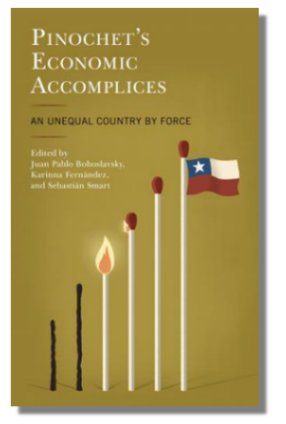
This book skillfully brings together scholars of history, sociology, economics, law and Latin American studies to shed light on the close ties between economics and politics in Pinochet’s Chile. It goes beyond presenting important case studies to also developing theoretical arguments to explain links between different kinds of inequalities in Chile. This is important for understanding the relationships between political and economic injustices more broadly, demonstrating the lessons to be learned for the rest of the world from Chile’s experience. The collection also challenges the so-called Chilean ‘success story’ in important ways as it shows how the unequal economic model is tied to its subordinate democracy. In a thoroughly multidisciplinary manner, the book also explores what role financial assistance played during the Pinochet regime, the role of extractivism and mining expansion for the regime, the role of ‘experts’ during the dictatorship, the role of the media, the dramatic consequences of various forms of privatization, the effects of changing union laws, dismantling of the welfare state, and the expansion of the carceral system.
Extractivisms: Politics, Economy and Ecology
By Eduardo Gudynas

Distinguished Uruguayan researcher Eduardo Gudynas explores extractivisms in the Global South in this fascinating, interdisciplinary book. This study of extractivisms illuminates the complex political relationships between humans and their natural environment, discussing the difficulty in combating extractivisms which are deeply rooted in Latin American culture and ideology. Through this study, the reader will come to understand the degradation caused by extractivisms, not just ecologically, but socially and politically, as Gudynas discusses its ‘spillover effects’ which seep into communities. Most significantly, Gudynas introduces us to the innovations borne in the Global South to combat extractivisms–theoretical concepts which include a redefinition of ‘surplus’ and a new understanding of conflict dynamics. These Global South-led solutions will present new solutions for the future.
A Brief History of Commercial Capitalism
by Jairus Banaji
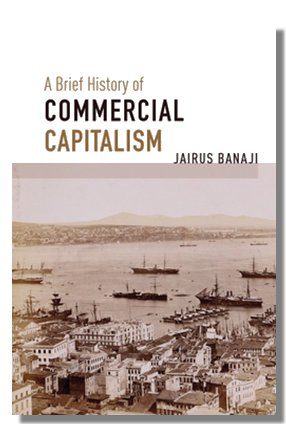
This book by Jairus Banaji is in both its scope and depth. It goes beyond the breakthrough of industrial capitalism in 18th century Britain to centuries earlier and across continents to argue that industrial capitalism in England was preceded by a long era of distinct “commercial capitalism”. We particularly appreciate that Banaji presents a diverse and vibrant world, including Muslim merchants trading in Guangzhou in the 8th century, thousands of European traders in Alexandria in the 12th century, and the battles for commercial dominance between Genoese, Venetians and Spanish Jewish traders in Constantinople, rather than a picture centered solely on Europe. The rise of Europe to world domination, then, has nothing to do with any unique European characteristics, but rather must be understood as a distinct fusion of commercial capitalism with state power. Through thinking of “theory as history,” Banaji’s approach skilfully ties history and economics together. Though also distinctly Marxist, this book is highly relevant and accessible to anyone interested in the history of capitalism.
The Robbery of Nature: Capitalism and the Ecological Rift
By John Bellamy Foster and Brett Clark
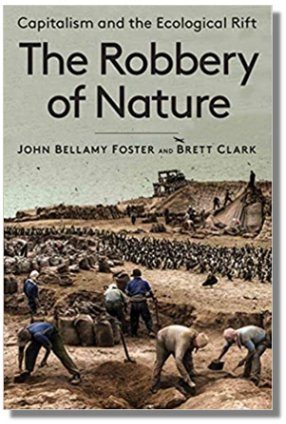
This is an important book for anyone interested in understanding capitalism’s violent relationship to its natural environment. Taking a materialist approach to understanding this relationship, Foster and Clark bridge the gap between social and environmental critiques of capitalism. Foster and Clark argue that capitalism treats nature as valueless and is therefore incapable of managing natural resources sustainably, all while capitalist production cannot occur without expropriation from nature. This is why they term the process “robbery,” because we are seeing appropriation of natural resources without exchange. While analysing the relationship between capitalism and nature is particularly urgent and relevant now, Clark and Foster have been developing this body of work for a long time and are long recognized as leading theorists of ecomarxism. You can for example read some of their earlier work on ecological imperialism, the global metabolic rift and unequal exchange here (2009) or Foster’s own work on the planetary crisis and capitalism here (1997). Nonetheless, this book represents a critical step forward in theoretical development in the ecomarxist tradition. Critically, they go beyond class and ecological analyses to also incorporate crucial social elements such as social reproduction, racial capitalism and ecological imperialism.
Rentier Capitalism: Who Owns the Economy, and Who Pays for It?
By Brett Christophers
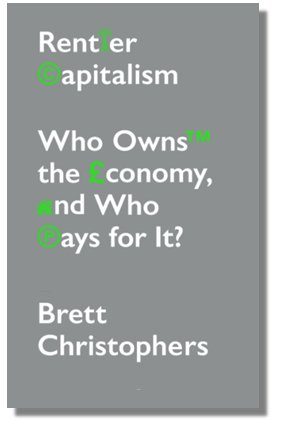
You may be familiar with the concept of rentier capitalism: “an economic order organised around income-generating assets, in which overall incomes are dominated by rents and economic life is dominated by rentiers.” The domination of rentiers in the economy has been commented on for centuries, but in Rentier Capitalism: Who Owns the Economy, and Who Pays for It? its scale, influence, and deceit are studied in-depth for the first time. In his anticipated, sweeping study of rentier capitalism in the UK, Brett Christophers reveals how a small number of elite corporate and individual rentiers are passively stockpiling wealth, leaving the rest of the economy to suffer at their expense. Christophers elucidates the rentierization of the UK economy and the insulation of the powerful rentier in modern capitalism. Through this highly-detailed case study, Christophers connects the UK’s economic stagnation, growing income inequality, and decreasing productivity to the growth of the rentier. As said by one reviewer, “Few books come along that fundamentally challenge the way you see the world. This is one of them.”
Casino Capitalism, Society and Politics in China’s Macau
By Sonny Shiu-Hing Lo
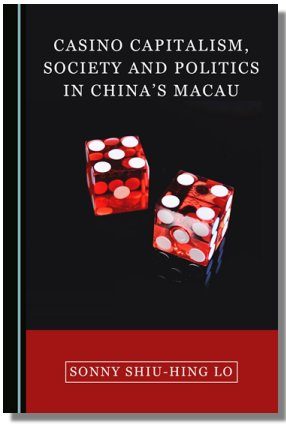
This new book explores the political economy of an economy that is built around the casino industry, especially in the form of an enclave under the jurisdiction of a state where gambling is illegal. The implications of a casino based local economy has not typically been examined extensively, especially how the economy of Macau has interacted with increasing globalization. Lo describes how the entry of multinational casino corporations, which he characterizes as the cultural expression of neoliberalism, transformed the urban structure of the economy and explores how it has transformed the culture of Macau, especially the in terms of its interaction with the American Las Vegas style of casino capitalism through the large multinational casino corporations. This book is a great way to understand the peculiarities of the riches and inequality that come with a casino economy, the political economy of this industry, and the role of the state.
By Devaki Jain

In this beautifully woven memoir, prominent feminist economist and public intellectual, Devaki Jain, reflects on her adventurous and zealous journey through life. The memoir talks about her personal, political, and the personal-political struggles, her intellectual and political encounters, and her quest for freedom. As a part of this journey she discusses her scholarly work on informal economy, gender, poverty, and power and colonialism – all of which is skillfully contextualised in her own personal evolution as an individual. Through this, the reader experiences a breakdown in the separation of personal, intellectual, and political – all of which coalesce to produce such rare courageous individuals. Decades later, despite several wins for women in academia on various fronts, the chilling experiences of sexual and other forms of gender-based harassment, which Jain shares, remain familiar to several women economists across the world – the plots change, as do the characters, the story, however, remains eerily familiar. The title of a short review of the book, “An economist’s lifelong quest for autonomy in a man’s world” captures an important essence of the book. The book leaves you with a lingering bitter-sweet sense of hurt, happiness, pride, anger, and valour, and is a highly recommended one on our holiday list. Watch the virtual book launch here.
Naoroji Pioneer of Indian Nationalism
By Dinyar Patel
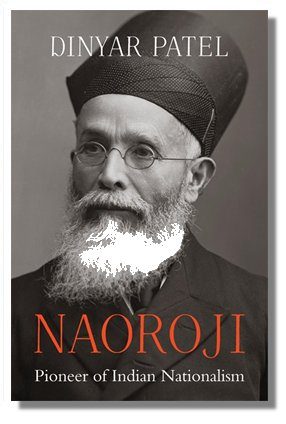
This excellent new biography of Dadabhai Naoroji gives us insight into the lives of one of India’s most influential thinkers, especially in terms of highlighting the ravages of colonialism and imperialism on developing economies. Most famous for articulating the drain of wealth from the British Indian Empire to Great Britain, which was revolutionary in the 19th century, Naoroji’s thoughts make clear that nationalism does not necessarily need to be a conservative and reactionary force, but in some circumstances, is a crucial bulwark of anti-imperialist thought. However, reading about Naoroji’s life also makes plain the importance of political activism and policy advocacy in order to change the political and economic wisdom of the time, in addition to rigorous scholarship. Naoroji built broad coalitions and contributed to many contemporary global debates, and his contributions are underappreciated today. This book goes a long way in rectifying this oversight.
Feminist International: How to change everything
By Veronica Gago
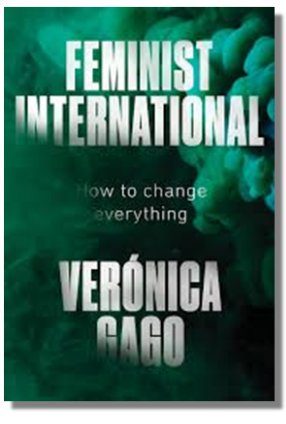
In this powerful book, Veronica Gago, uses the lens of feminist strikes to analyze various dimensions of the feminist movement. She broadens the scope of the feminist struggles and links it with issues of violence, dispossession, extractivism. The book intricately situates the identity of gender – as mutually co-constituted with other identities – and identity-based power within economic structures and exploitation. On one hand, the account is politically charged and draws from the experiences of radical feminist movements, and, on the other hand, it provides an important intervention to the social reproduction theory and other Marxists-feminist frameworks.
Rethinking the Social Sciences with Sam Moyo
By Praveen Jha, Paris Yeros, and Walter Chambati (Eds)
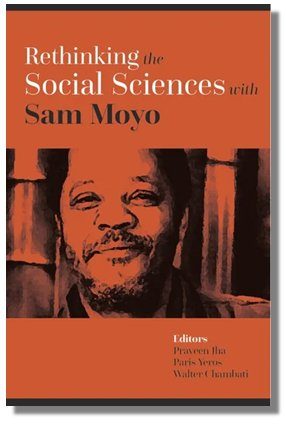
This book takes forward the critical scholarship of Sam Moyo, the Zimbabwean scholar whose intellectual trajectory was an integral part of critical African scholarship from the 1970s, and in particular when it came to land and agrarian questions. The book revisits the classical agrarian question (from a European perspective), which Moyo expanded to also consider gender equity and ecological sustainability, and it critiques what Moyo considered to be the Eurocentric Marxist treatment of agriculture, as Moyo’s research elaborates on the importance of emerging rural struggles in the South. His tragic death in a car accident in 2015, “cut short a scholar at the height of his powers,” as Dzodzi Tsikata has written elsewhere. Before his life was cut short, his scholarship strongly influenced a global research agenda on Africa, the Global South, and agrarian issues. His strong commitment towards autonomous knowledge production from the South was particularly important. Indeed, according to the book editors, Moyo’s intellectual journey laid down the principle of epistemic sovereignty.
(This list was compiled for D-Econ by Aditi Dixit, Devika Dutt, Maya Fitchett, Surbhi Kesar, Ingrid Harvold Kvangraven and Lily Marra.)
See also D-Econ’s Fall 2020 Alternative Reading List and D-Econ’s Pandemic Reading List.
